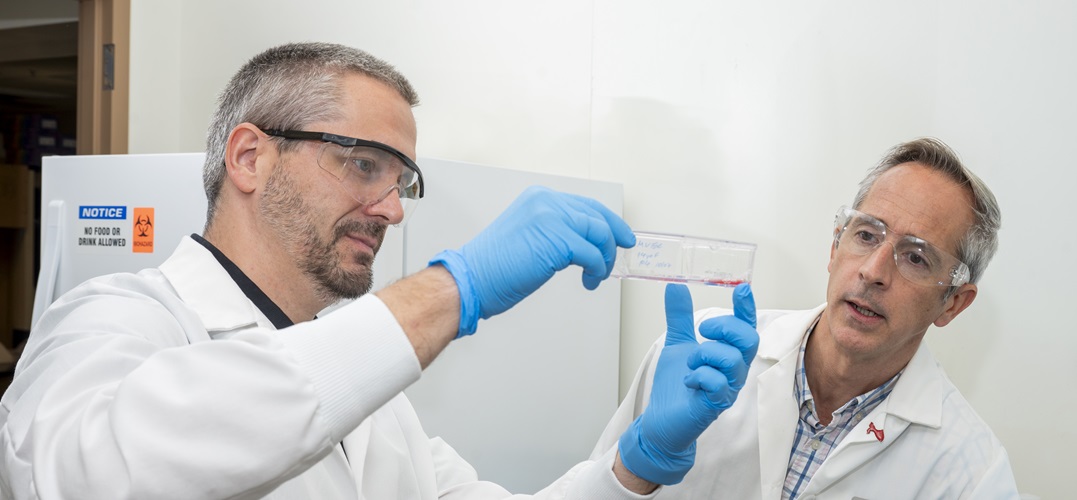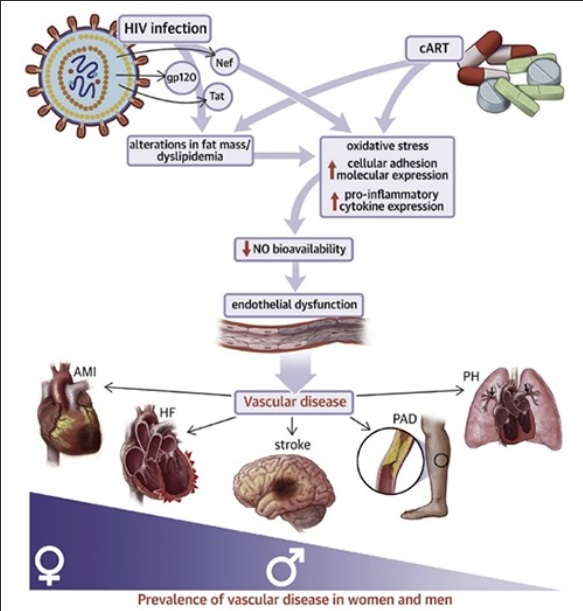
- Augusta University
- Centers & Institutes
- Vascular Biology Center
- Research Publications
Research Publications
Research Interests
The Kovacs laboratory focuses on investigating the mechanistic links between HIV and pulmonary vascular disease (PVD) while identifying the molecular mechanisms through which HIV-derived proteins contribute to the pathological processes of HIV-associated pulmonary vascular remodeling and cardiopulmonary alterations. My research program uses mouse models of HIV and smooth muscle-specific knockout (KO) mouse models to explore the signaling pathways involved in HIV-related PVD. We utilize echocardiography, hemodynamic measurements, and morphometric analysis to assess pulmonary arterial remodeling, PVD, and right ventricular hypertrophy (RVH), along with in vitro molecular biology approaches in primary isolated vascular smooth muscle cells to dissect the underlying molecular mechanisms involved in these processes. Our long-term goal is to develop new therapeutic strategies for the intervention and treatment of HIV-associated cardiopulmonary complications.
Jump to: Research Projects Spotlight Publications Recent Publications
Research Projects
The introduction of combination antiretroviral therapy (cART) has led to a dramatic suppression of HIV replication and improved the lifespan of people with HIV (PWH), which now approaches that of the general population.
Although effective HIV treatments have dramatically decreased HIV/AIDS-related mortality, cardiovascular disease has become the leading cause of death in PWH.
PWH suffers from a higher risk of pulmonary vascular disease (PVD), the prevalence of which is more than 8 times higher in PWH than in HIV negative individuals. PVD is amongst the most devastating cardiovascular complications of HIV.
My primary research goals are to investigate:
- Underlying molecular mechanisms of PVD associated with HIV infection.
- Individual effect of HIV protein Tat (Transactivator of transcription) on the pulmonary vasculature.
- Signaling pathway(s) involved in age-related influences on HIV-PVD.
- Impact of HIV on chronic lung diseases such as COPD, asthma, and lung cancer.

Schematic figure shows the potential mechanisms in which HIV infection, viral proteins, and combination antiretroviral therapy (cART) contribute to endothelial dysfunction leading to HIV-associated cardiovascular disease. (Kovacs L, et al., J Am Coll Cardiol Basic Trans Science. 2022;7(4):410–421
Spotlight Publications
- L. Kovacs, T.C. Kress, E.J. Belin de Chantemèle: HIV, Combination Antiretroviral Therapy and Vascular Diseases in Men and Women. JACC Basic Transl Sci. 2022 Apr;7(4):410-421.
- L. Kovacs, T. Bruder-Nascimento, L. Greene, S. Kennard, E.J. Belin de Chantemèle: Chronic Exposure to HIV-Derived Protein Tat Impairs Endothelial Function via Indirect Alteration in Fat Mass and Nox1-Mediated Mechanisms in Mice. Int J Mol Sci. 2021 Oct 12;22(20):10977.
- Y. Su, W. Han, A. Kovacs-Kasa, A. D. Verin, L. Kovacs: HDAC6 Activates ERK in Airway and Pulmonary Vascular Remodeling of COPD, Am J Respir Cell Mol Biol. 2021 Dec;65(6):603-614. (2021).
- L. Kovacs, Y. Cao, W. Han, L. Meadows, A. Kovacs-Kasa, D. Kondrikov, AD. Verin, S. Barman, Z. Dong, Y. Huo, Y. Su.: PFKFB3 in Smooth Muscle Promotes Vascular Remodeling in Pulmonary Arterial Hypertension. Am J Respir Crit Care Med. 1;200(5):617-627. (2019).
- L. Kovacs, W. Han, R. Rafikov, Z. Bagi, S. Offermanns, TC. Saido, SM. Black and Y. Su: Activation of Calpain-2 by Mediators in Pulmonary Vascular Remodeling of Pulmonary Arterial Hypertension. Am J Respir Cell Mol Biol. 54(3):384-393. (2016).